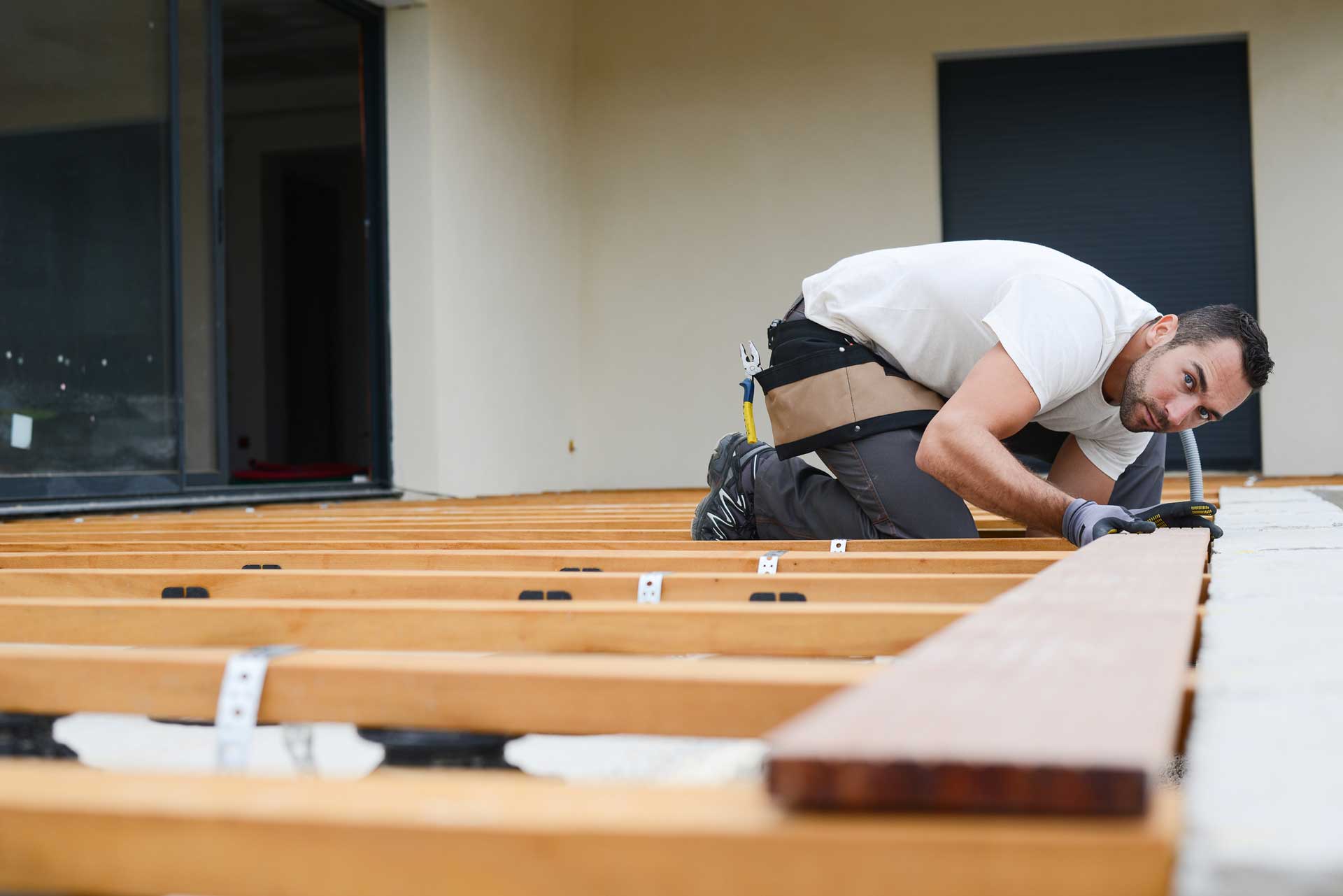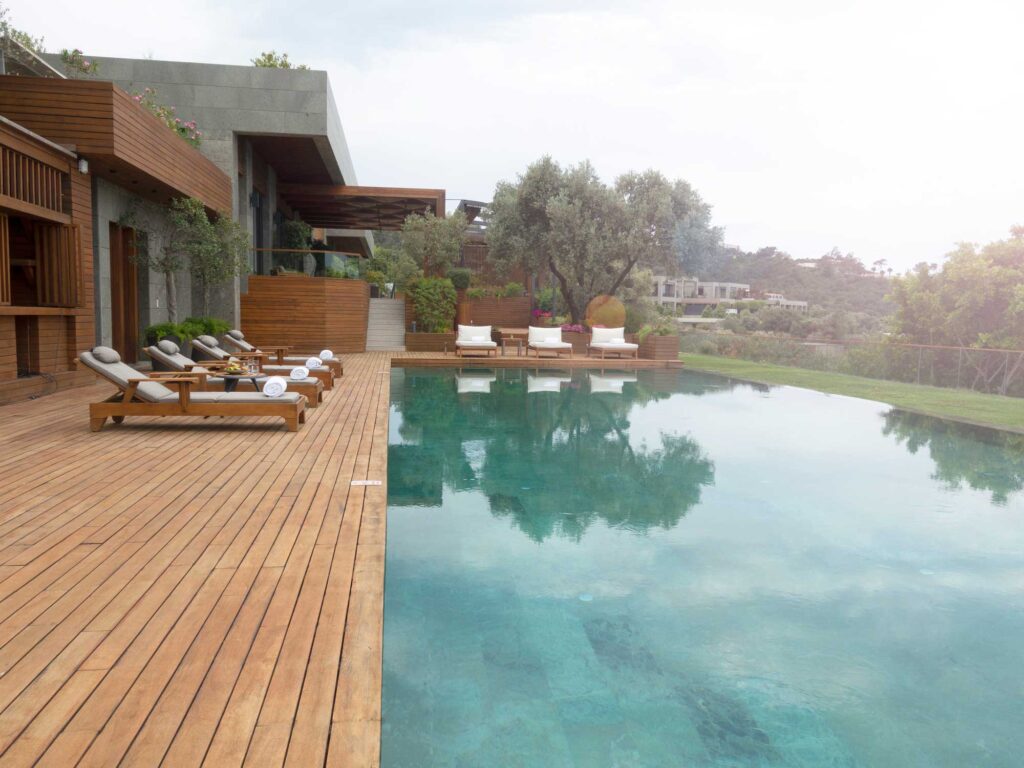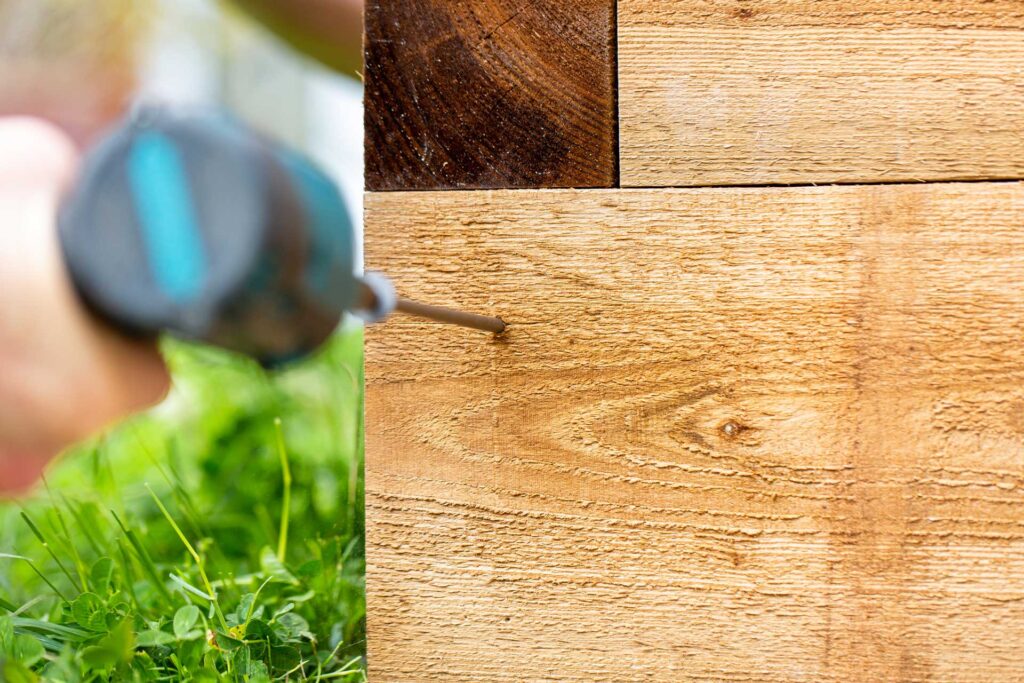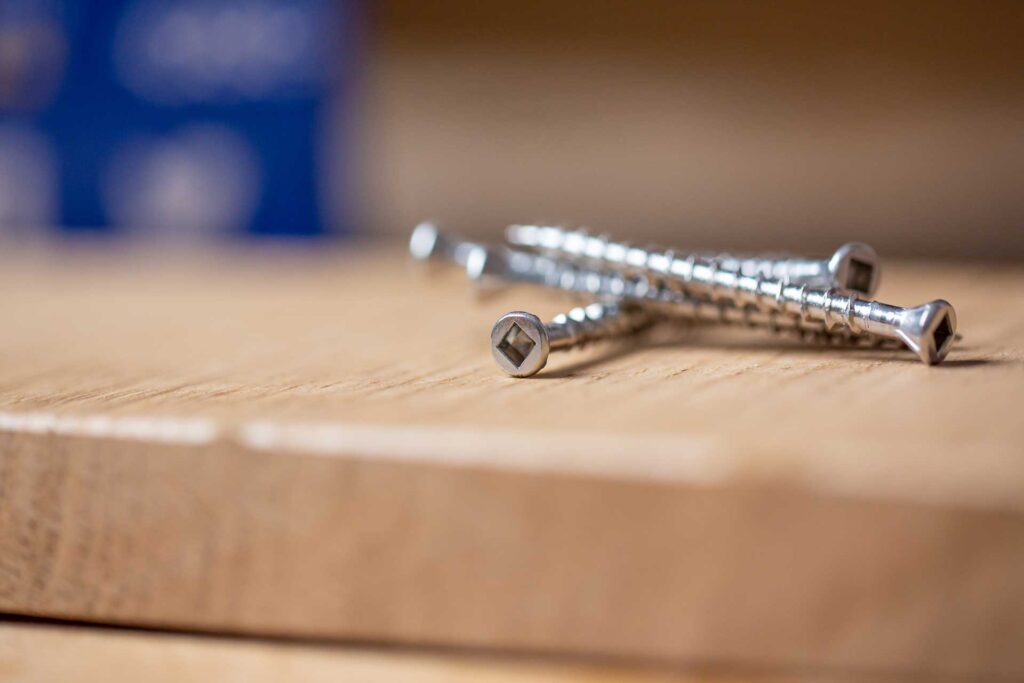
Over the last few decades, the use of timber for garden landscaping has grown and grown. Trends have moved away from the very formal style of older gardens, towards a much more organic look where elements like paving are softened by wooden decking, handrails and pergolas.
Softwood timber is popular for gardens because it’s cost-effective and readily available – but when it comes to natural beauty and longevity, there’s simply no substitute for using hardwood on landscaping jobs.
From decking to retaining walls and garden structures, hardwood is a versatile material that brings some huge benefits to the garden – but it can be more challenging to work with.
In this blog, we’ll take a look at the different types and natural properties of hardwood, exploring some of those challenges and outlining why hardwood is the material of choice for discerning carpenters and homeowners alike.
What’s the difference between hardwood and softwood?
The difference between hardwood and softwood starts with the trees themselves. Hardwood is typically derived from deciduous trees, which shed their leaves in autumn, while softwood is derived from conifers, which are evergreen.
Deciduous trees have a complex cellular structure for moving water and nutrients around. This is what gives hardwood its unique and highly varied grain patterns. It also means that the tree grows more slowly, with a denser structure.
Evergreen trees grow quickly which means they have simple cellular structures designed to carry moisture up the trunk fast. This is why softwoods have a simple grain that tends to be quite uniform, even from tree to tree. As a result, softwood timber is less dense, with a higher moisture content that makes it ‘softer’ – although it should be noted that depending on species, softwoods can be harder than hardwoods.
Moisture inside a tree is usually present in the form of sap. The sap must be dried out before the timber can be used. Softwood trees are known for having a lot more sap than hardwood species, but because their cellular structure is more open, moisture can escape more easily and they dry out faster, at lower temperatures than hardwood. In tree species where a lot of sap is present, such as pine, it can cause problems including brittleness in the timber, or problems with applying adhesives, lacquers and other finishes.

Is hardwood or softwood better for landscaping?
Both hardwood and softwood are suitable for landscaping jobs. Many softwoods are very strong, and they are also lighter, more flexible and easier to work with than hardwood. Because softwood grows so quickly, it is also a sustainable source of timber.
However, when it comes to sheer durability, hardwoods win hands down. Hardwoods are typically very dense, heavy and strong. A single hardwood member will often be as strong as a double- or triple-ply softwood member.
Many hardwood species also have a high oil content. Examples of this are teak and mahogany. The natural oils in hardwood give it natural resistance to moisture which means hardwood is extremely durable in outdoor settings, and will last for many, many years without the need for treating. Softwoods on the other hand typically have to be pressure treated prior to use, and must then be protected from the elements with an annual coat of a suitable wood treatment.

What are the different types of hardwood?
While softwoods all tend to look the same (especially after pressure treating), hardwoods come in an array of different colours and grain patterns that can give a project a uniquely beautiful aesthetic. Here are some hardwood species that are commonly used for landscaping projects:
Oak
Readily available and extremely versatile, oak is extremely strong and has a classic appearance with a pale golden colour. It’s often used for decking, fencing, pergolas and garden structures. Oak is also used for railway sleepers, which are popular for edging and retaining walls.
Iroko
Iroko is an African hardwood known for its resistance to adverse weather conditions, insects and rot. It has a rich, golden colour that is very similar to teak with the advantage of being lighter to handle.
Balau
Balau is a tropical hardwood native to southeast Asia that is renowned for its water resistant, non-slip properties. Balau was originally used for the decks of ships because of its flexibility and non-slip texture, even when wet – and for this reason it’s a popular choice for decking in the UK. Balau is easier to work than many other hardwoods, but is less resistant to boring insects than other varieties. Its colour can vary from a straw-like yellow shade through to a rich, reddish brown.
Sweet Chestnut
Sweet chestnut is another UK native species and is similar in appearance to oak. It’s strong, but not quite as strong as oak, and is highly resistant to moisture and insects.
Teak
Native to India, teak is one of the best-known hardwoods and is used a lot in manufacturing garden furniture. Teak is softer than other hardwoods and requires regular care to keep it looking good. It ages rapidly to a silvery finish that can become dirty-looking, so requires regular sanding and oiling to keep it looking new.
What can you build with hardwood?
Hardwood timber can be used for any task you would normally complete using softwood. This includes:
- Hardwood decking
- Hardwood balustrades and hand rails
- Hardwood steps
- Hardwood retaining walls
- Hardwood pergolas
- Hardwood lawn edging and raised beds
- Hardwood benches and tables

What fixings do you need for hardwood?
Choosing the right wood fixings for hardwood is important due to the long lifespan of the material. There’s no point building a beautiful hardwood deck or pergola with a 30-40 year lifespan, using cheap screws that will only last a few years.
Carpenter’s Mate screws come with a lifetime guarantee against rot, corrosion and breakage and are designed to outlast the timber itself – even hardwood. For hardwood structures in the garden, here are the fixings we recommend:
- Stainless steel screws
We always recommend the use of stainless steel fixings for hardwood due to their increased corrosion resistance and their inherent flexibility, which allows the structure to move and flex naturally. We use marine-grade 316 stainless steel for our fixings, which means they are guaranteed to last as long as any hardwood structure.
NOTE: Many hardwoods contain tannins which can react with the metal in standard fixings and create black stain around the head of the screw. Using stainless steel screws prevents this from happening. - Deck screws
Conventional decking screws can also be used to fix hardwood timbers, especially on decking projects where their self-drilling tips and specialised thread pattern offers rapid installation and superior grip. Carpenter’s Mate deck screws are given a proprietary weatherproof coating that won’t wear off, ensuring the screws outlast the timber itself. We can also match the heads of our carbon and stainless steel deck screws to a range of RAL colours for a virtually invisible finish on any hardwood. - Decking clips
Invisible fixings are often preferred on a hardwood deck because when the client has spent a lot of money on timber, they want that seamless look. We recommend OSC’s CAMO deck clips and fixing systems for when you want to achieve invisible fixing on a hardwood deck.
Durability and style
To summarise, choosing hardwood over softwood for a landscaping project has many advantages. While initial costs may be higher due to the raw material price and the additional labour involved in working with heavier materials, the finished project will require much less maintenance, and will last much longer than the same structure built in softwood. Although softwood is arguably more sustainable, the long life of hardwood means you won’t be going back to rip out and replace a deck in 5 years’ time, which also has environmental benefits.
A major benefit of hardwood for the customer is its appearance. The colour, the grain pattern and the unique look and feel of tropical hardwood creates a distinctive aesthetic that perfectly complements high-value properties. Specialising in hardwood decking and other landscaping projects gives carpenters an opportunity to differentiate their business and tap into a lucrative revenue stream.
To find out more about Carpenter’s Mate fixings and how they can help you achieve efficient, seamless working, especially on premium jobs, get in touch.


